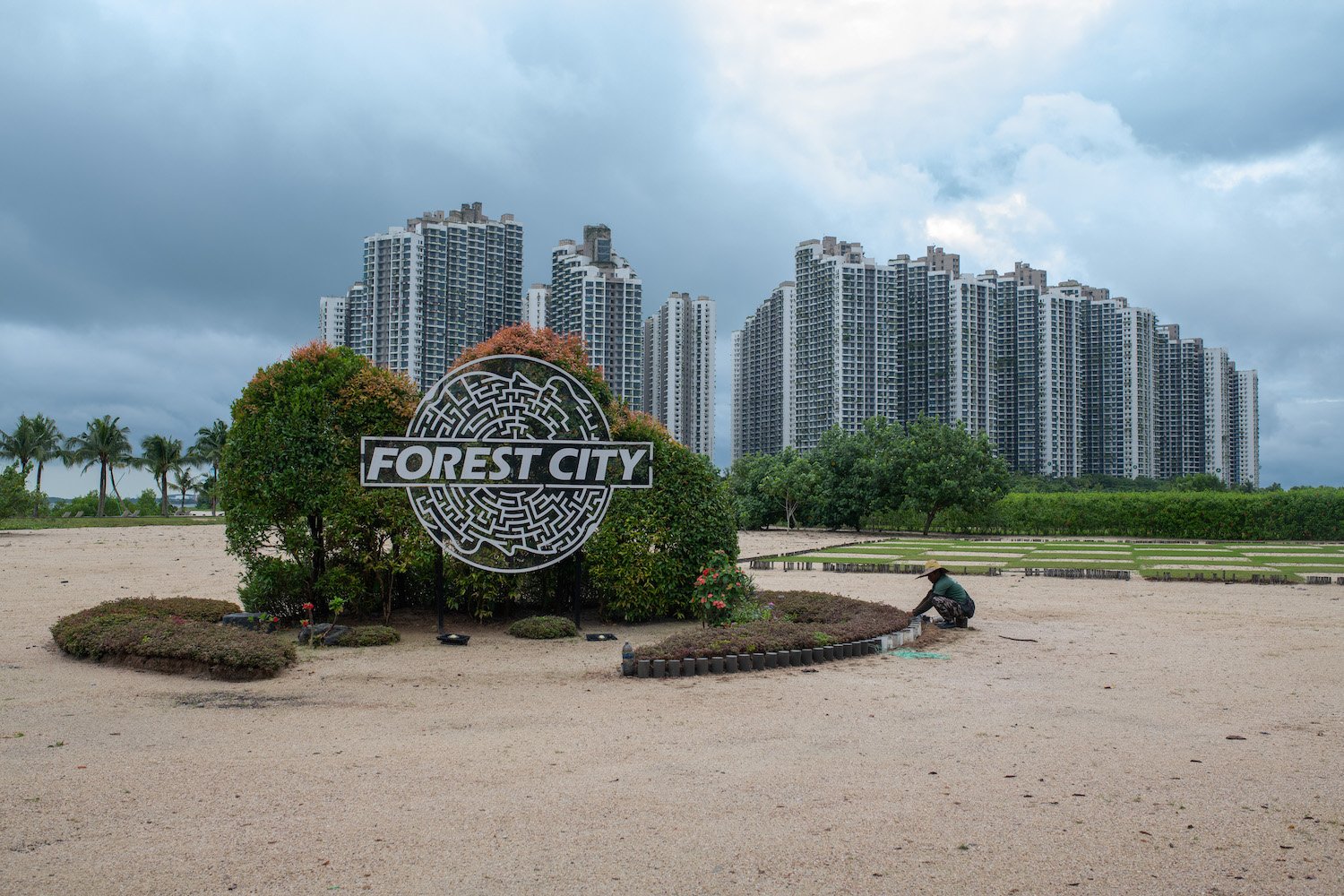URGENT UPDATE: Tech investor Balaji Srinivasan has just officially opened a new school in an abandoned Chinese-built city, dubbed “Forest City,” located in Johor, Malaysia. This initiative is a bold move for Srinivasan’s Network State movement, which aims to create privately governed “countries” run by decentralized corporations.
The $100 billion development, once part of China’s Belt and Road initiative, now stands as a “ghost city,” largely uninhabited and filled with empty skyscrapers. Reports from Bloomberg indicate that the school has commenced operations, attracting tech enthusiasts eager to explore this avant-garde vision of governance.
Participants are experiencing a daily routine reminiscent of Silicon Valley, engaging in coding, fitness, and fine dining, all while attending seminars led by influential figures in the tech space. While many would question the practicality of establishing a new country, excitement buzzes among attendees. One participant expressed enthusiasm about being “surrounded by other awesome builders,” signaling a growing community that is rallying around Srinivasan’s radical ideology.
Despite the apparent enthusiasm, the Network State movement faces significant challenges. The concept of creating new nations has proven historically complex, with participants eyeing potential testbeds in locations like Greenland and even the Balkans. Meanwhile, the “Freedom Cities” movement, which shares supporters with the Network State, continues to seek political backing in the U.S., notably from the Trump administration.
Current developments suggest that while the Network State garners attention, many associated projects struggle to gain traction. Notably, the city of Prospera off the coast of Honduras remains embroiled in a contentious legal battle with the Honduran government over its existence, highlighting the significant hurdles ahead for the movement.
As the school in Forest City aims to incubate these ideas and spread Srinivasan’s vision, the future remains uncertain. The Network State movement appears to be at a critical juncture, where the idealism of hyper-capitalism clashes with the realities of existing political structures.
What’s Next: The coming months will be crucial for the movement as it attempts to solidify its foothold in a world increasingly skeptical of radical reform. With new classes underway, the urgency to watch how this unfolds is palpable. Will the tech utopians find a way to establish their vision, or will existing powers stifle their ambitions? Stay tuned for updates as this story develops.
